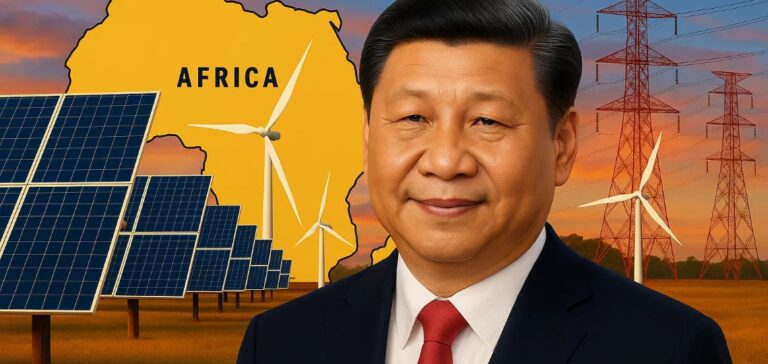The rise of Chinese investments in renewable energy abroad is primarily driven by internal economic challenges. For over fifteen years, Beijing has grappled with chronic industrial overcapacity, particularly in manufacturing sectors such as steel and energy equipment. China’s response has been an aggressive export strategy and targeted investments in foreign energy infrastructure. This trend has intensified in recent years with the emergence of industrial sectors focused on clean energy, such as solar photovoltaics and wind power.
An industrial expansion strategy
According to the International Energy Agency (IEA), China currently holds over 80% of global solar panel manufacturing capacity and controls about 60% of the wind component market. This industrial dominance is not coincidental but the result of proactive public policies launched by the Chinese government since the early 2000s. Through incentives such as subsidies, tax credits and feed-in tariffs, China has built an industrial sector capable of offering extremely competitive products on international markets. Chinese companies must now secure new commercial outlets to maintain their activity levels and profitability.
Investing to offload overcapacity
China’s international strategy also helps absorb the financial surpluses accumulated by its economy. These surpluses stem largely from abundant domestic savings within Chinese banks and the excess financial reserves of state-owned enterprises. Through major initiatives like the Belt and Road Initiative (BRI), China recycles its surplus capital and reduces internal economic imbalances by funding major energy infrastructure abroad, primarily in Emerging Markets and Developing Economies (EMDE). The dual objective is to secure long-term markets for its technologies and preserve domestic economic stability.
Strengthening China’s international position
By investing heavily in renewable energy abroad, China also secures a strategic position within global value chains. Beijing’s explicit goal is to dominate high value-added sectors, traditionally controlled by European or American companies. By developing energy infrastructure in foreign markets, China gradually imposes its industrial and technological standards, thereby easing the market entry of its firms into high-potential regions, particularly in Africa, Southeast Asia and Latin America.
This strategy of industrial and commercial expansion is raising significant questions about future global economic balances, particularly in the energy sector, where China appears determined to secure a lasting foothold.






















